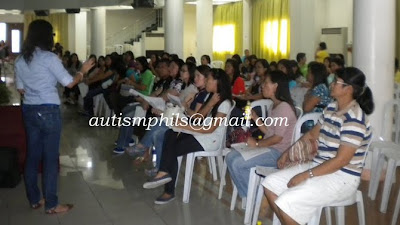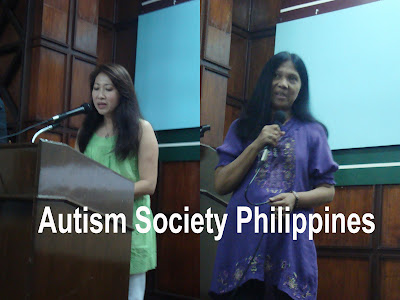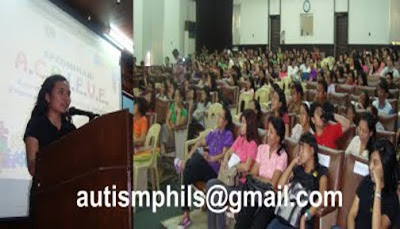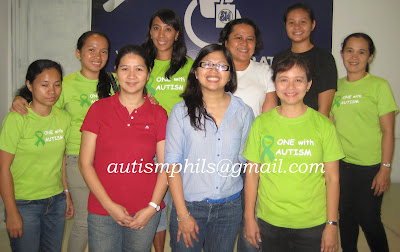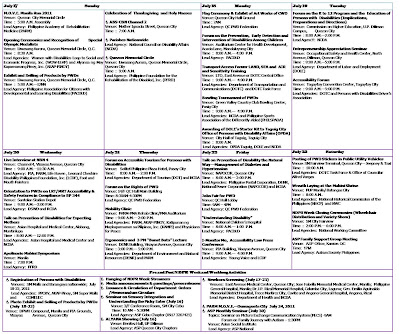By DANG U. KOE, ASP Chair Emeritus
MANILA, Philippines — Most parents grieve upon hearing their children diagnosed with autism. Lito and Gina Bermudo grieved twice.
Their two sons, Niko and Xandi, were both diagnosed with autism. Actually, the grieving was more than twice because the two boys were diagnosed with multiple disabilities: Niko lost his right eye at age two to unknown cause, while Xandi had Attention Deficit Hyperactivity Disorder (ADHD) and Marfan Syndrome.
But parents Gina and Lito immediately bounced back from grieving to help their two sons get the most out of living. Interviewed by this paper in May 2010, Gina shared that after Nikko’s eye surgery, she could take anything. “Any condition after that case parang mas madali na lang i-handle. Parang ang inisip ko na lang, at least buhay ‘yung anak ko,” she said.
Parents of children with autism grieve for the loss of the typical child that they expected to have. Nonetheless, all parents love their atypical children. Like Lito and Gina.
 |
| Xandi Bermudo |
But right now, the couple is grieving again. Xandi, at 13 years old, left his family at “12:20 early this morning, July 20, to be with our Father in heaven where he can be free to do whatever he wants,” texted Gina to their friends and kins.
In seven and a half weeks, Xandi had three open heart surgeries to repair the aerotic valve in his heart. He was a “fighter, a walking miracle” and was already recovering from his two heart surgeries. Then Xandi had a heart attack and aneurysm. Although there was no problem with the third procedure, his heart just could not take it anymore.
According to Gina, a small wound where a tube was inserted in the aorta did not heal as expected. His veins gave way and soon his kidneys.
Gina said before that the cases of her children are “super special” because of their multiple disabilities. Xandi’s death can also be considered as “super special” because it is not included among common causes of death among persons with autism, based on a Danish study conducted by Mouridsen SE, Brønnum-Hansen H, Rich B, Isager T. on “Mortality and causes of death in autism spectrum disorders.”
Causes of death in autism
The Autism Speaks website reported that “in 2008, a Danish team of researchers published a revealing scientific study documenting the mortality rate of individuals with Autism Spectrum Disorders (ASD). Following over 340 individuals from adolescence to adulthood, this study confirmed earlier results showing that the rate of death is twice as high among individuals with ASD as the general population.
Additionally, this higher than average mortality risk among individuals with autism was found to be even higher among females when compared to males, although it was noted that sex differences need to be further explored.
The authors discovered that epilepsy was present in eight of the 26 individuals with ASD that died during the study period, and in four cases, epilepsy was noted as the underlying cause of death.
Other common causes of death included infectious diseases, diseases of the circulatory system, and unnatural causes such as suffocation and drowning.
Interestingly, it was further observed that common causes of death differed between younger and older subjects in the study. For instance, it was noted that epilepsy-related deaths were more common among relatively young individuals.
Additionally, diseases of the circulatory system were common causes of death among older individuals, while deaths due to unnatural causes were more likely among younger individuals with ASD.
Preventive measures
With new insight into the elevated mortality and common causes of death among patients with ASD, there is now a greater ability to evaluate preventive measures and medical care practices that may help ensure the well-being of these individuals.
By noting that epilepsy and infectious disease may be the most common causes of death among individuals with ASD, professionals can direct their focus on preventing and/or treating these conditions.
Furthermore, parents and caregivers should be aware that their loved ones with ASD are at increased risk of accidental deaths due to drowning and suffocation, particularly younger individuals.’’
 |
| Gina and Xandi Bermudo |
Greatest impact
While the cause of Xandi’s death can be considered as “super special” in relation to the findings of said Danish study, it is even “super-duper special” because of how it impacts the lives of his parents and those of other families dealing with autism.
Last year, Gina shared with this paper’s readers that “the unconditional love and purity of heart from both the kid and parents… they are my greatest motivation, it has the greatest impact on my life.”
Gina was indeed so motivated to help co-parents that she agreed to serve as board trustee of ASP, doing her rounds of public speaking to educate people on autism. She also composed and produced “Mga Awiting Alay sa Autismo,” a compilation of heartfelt compositions inspired by her two sons. Proceeds of this album go to ASP to help further in spreading autism awareness.
Gina’s greatest dream is for her two boys “to lead a life full of love and happiness in whatever world they are into and to be surrounded by people who equally love them unconditionally.”
Xandi’s death showed that Gina’s dream has long been realized. Seeing the multitude of co-parents, teachers, therapists, special classmates saying goodbye to Xandi in the hospital, Lito said, “I didn’t know my son was very popular…He is our son. He is our special child. He is your son, too. We would like to share Xandi with you.”
Uploaded with Permission
Acknowledgment Manila Bulletin: Sing no sad song for Xandi




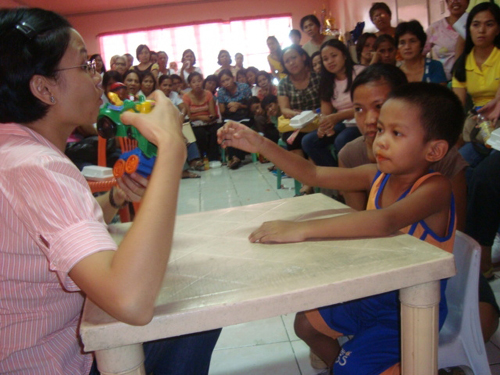
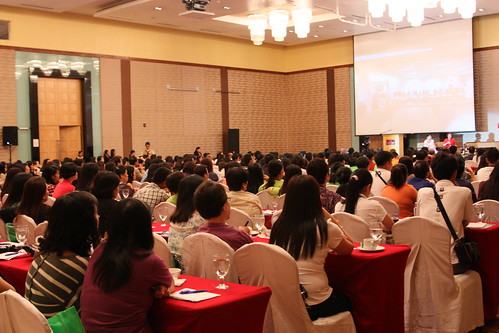








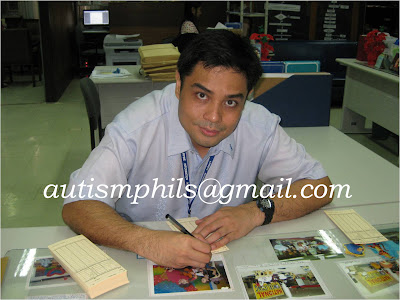

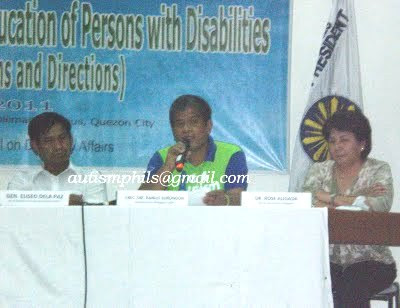

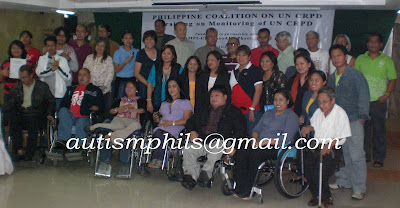






 Posted in:
Posted in: 